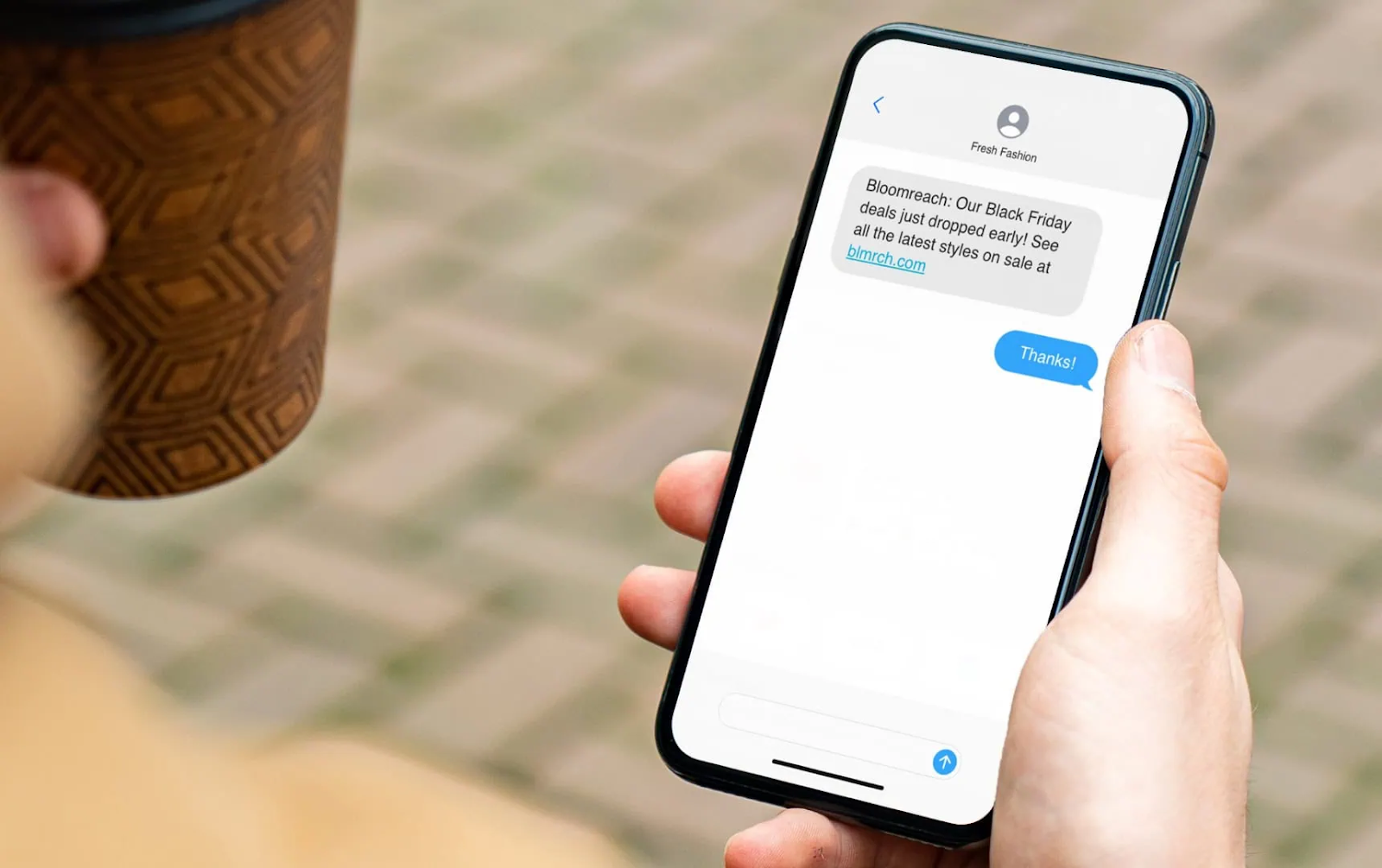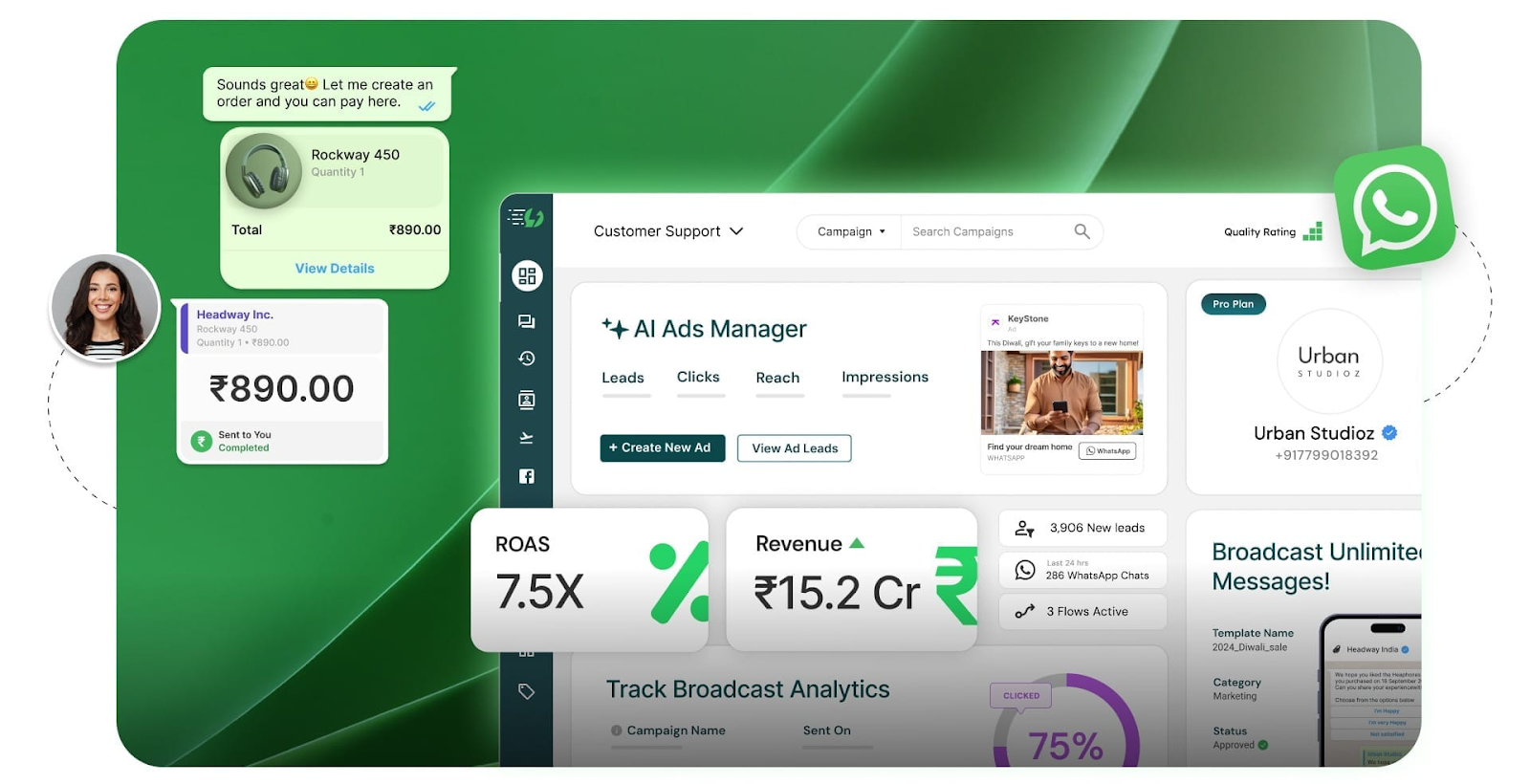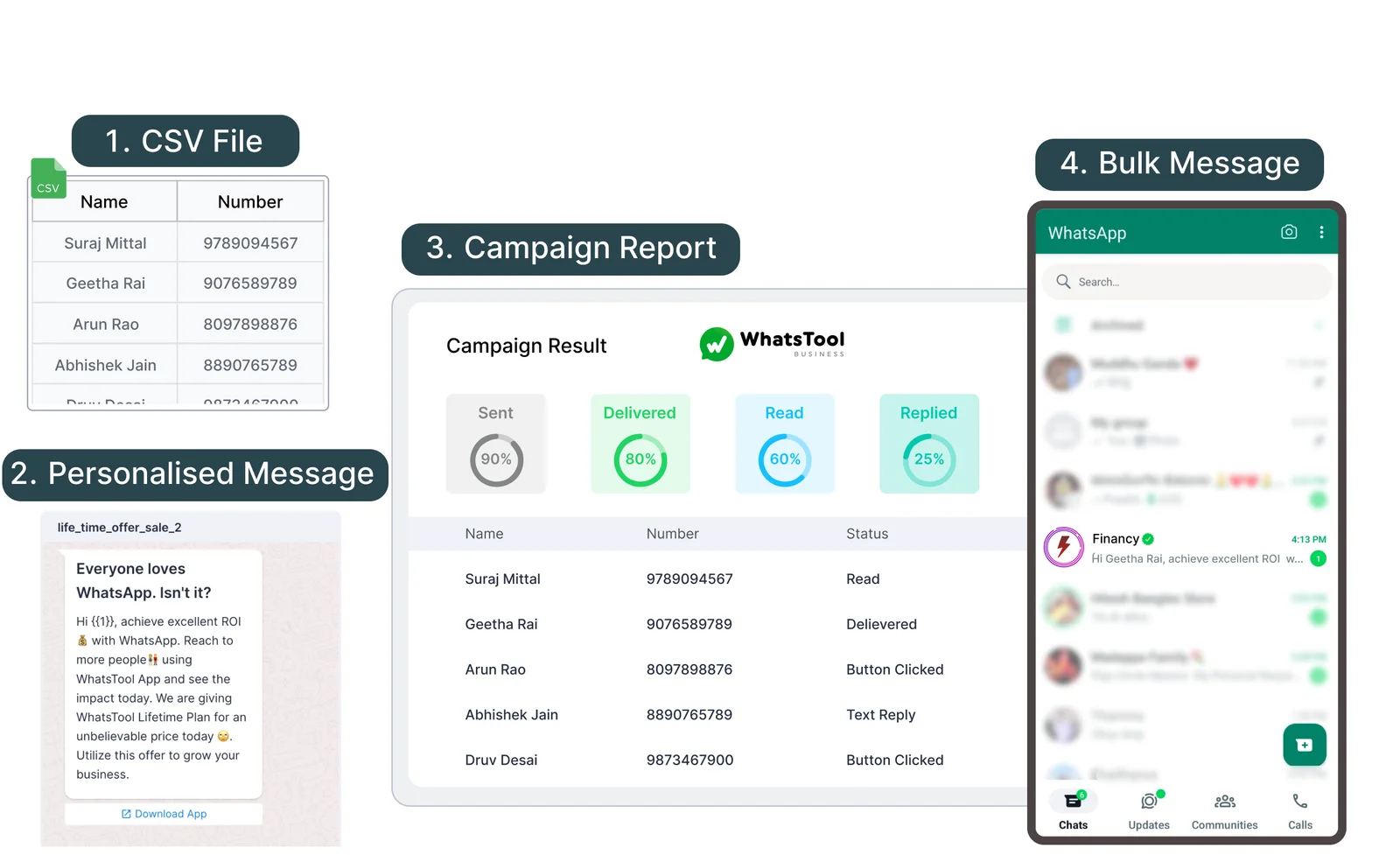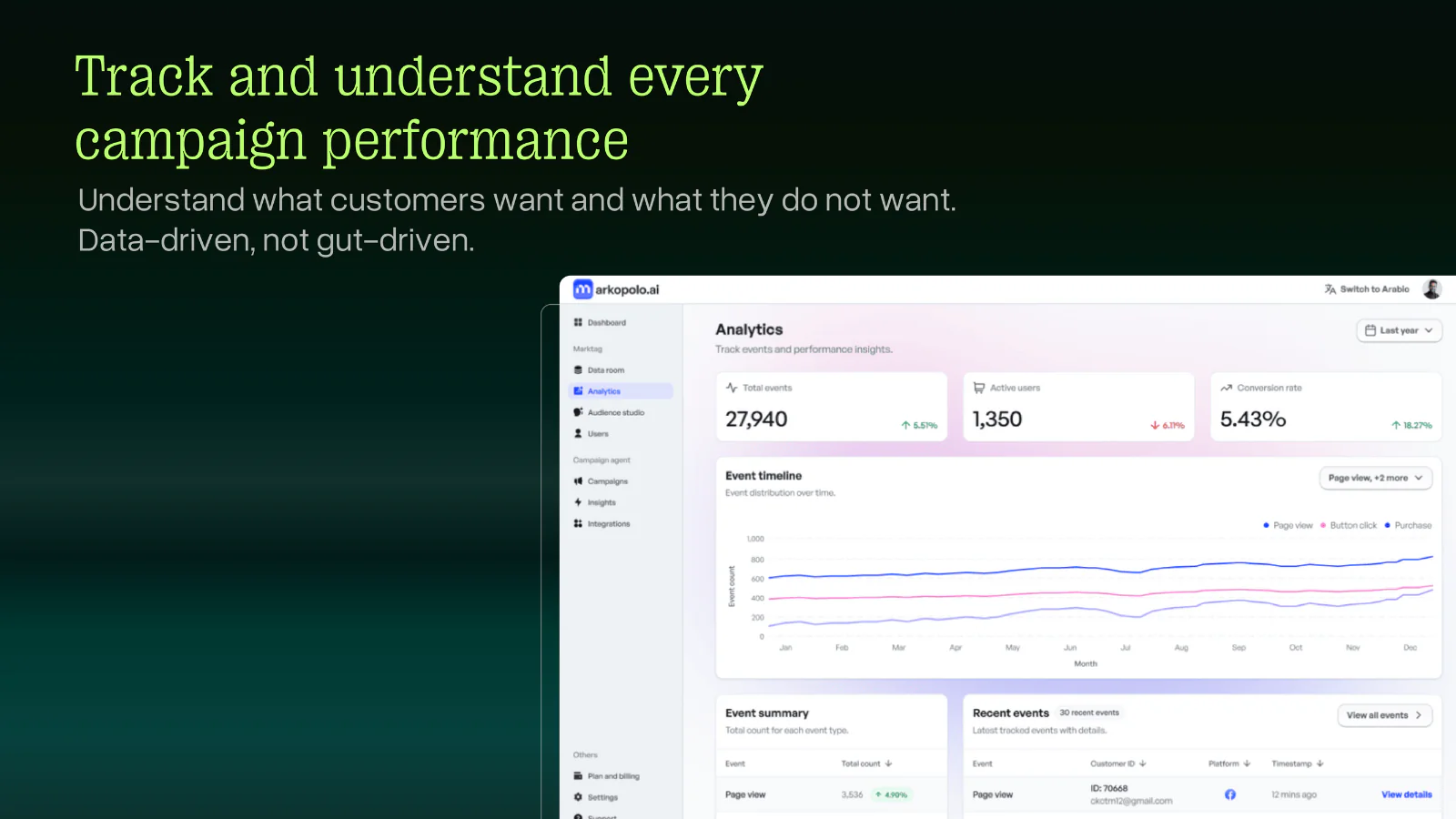
The average human attention span is 8.25 seconds, which, by the way, is less than that of a Goldfish. No wonder Ted Lasso was obsessed with Goldfish, but that’s not the point.
The shorter attention span is largely due to the numerous distractions on the internet. And that’s what impacts Shopify merchants.
With attention fleeting, brands need channels that deliver direct, meaningful connections. I am not just talking about a one-off interaction or a simple query. Communication that ultimately converts.
That’s the reason why SMS Marketing Shopify stores are turning to personalized messages and automated WhatsApp flows.
Plus, it’s about time that brands move on from generic mass texts because, honestly, it doesn’t work anymore. Customers just register them as spam or unimportant and skip ahead.
Customers want instant replies, but they also want texts to be relevant and personal. You might argue that personalization at such a scale requires much time, and you’d be right. However, personalized SMS campaigns and WhatsApp business automation have allowed brands to get the best of both worlds.
Why Mobile Messaging Matters Now?

Mobile usage continues to dominate the lives of people and businesses. According to Statista, smartphones drive 77% of retail site traffic globally.
You will be surprised to know that the average SMS open rate is around 98%, which is substantially higher than email’s open rate of just 20%.
These stats further substantiate the fact that SMS marketing remains a top option for businesses. There’s more to it.
Ever since businesses have started using automated chat flows for WhatsApp, their response time has reduced by 35%.
But there’s one more stat that’s equally surprising. Despite WhatsApp automation and SMS marketing being such good investments, only 11.7% of Shopify stores have completely incorporated them. Meaning there’s an untapped potential.
Understanding the Channels
SMS marketing, Shopify merchants should see as a high-visibility, immediate channel, short messages, direct to the phone, with minimal distraction. When you pair that with personalized SMS campaigns, you elevate the impact.
For instance, messages referencing what the user browsed, the location they’re in, or a recent purchase, not just generic blasts.
On the other hand, WhatsApp business automation brings conversational, rich-media potential like images, quick replies, inventory updates, and even voice notes. And because it’s permission-based and global with deep penetration, it spans geographies.
What Are The Best Practices for Personalized SMS & WhatsApp Marketing?

The following are some actionable strategies for global Shopify brands -
- Segment by behavior & location
Don’t simply segment by country. Consider how the user engages, language preferences, and device type. Tailor your message accordingly.
- Use relevant and localized content
Reference local holidays, regional preferences, currency, and even mobile habits. A message that works in Dhaka might flop in Dubai if the context is off.
- Keep SMS short and actionable
For SMS, you have limited real estate. Make the CTA clear, include a link, preferably short, and time it when your audience is active.
- Automate thoughtfully
Trigger messages based on events like cart abandonment leads to SMS within 15 minutes, or browsing but not buying leads to a follow-up WhatsApp message.
- Respect frequency and permission
Over-message and opt-out rates rise. Many studies show an average opt-out rate of 1-2 % for SMS when done well.
- Monitor metrics and iterate
Track delivery rates, click-throughs, and conversions from WhatsApp flows. For SMS, conversion tracking is key to justify spend.
Must-Have Tools for Shopify Messaging

Here are some excellent tools for global Shopify merchants leveraging mobile messaging and automation:
- Markopolo – Designed as an AI-driven automation engine, Markopolo not only orchestrates campaigns across channels but also handles intelligent messaging flows. With Markopolo, you can design personalized SMS campaigns and integrate WhatsApp business automation, letting AI agents handle messaging at scale while still keeping the human tone.
- Klaviyo SMS – Widely used on Shopify and offers robust segmentation, automation, and built-in SMS + email workflows.
- Omnisend – Offers SMS and email automation with a strong Shopify integration and global reach.
- WATI.io – A WhatsApp-first platform that integrates with Shopify and allows automation of WhatsApp business messages, chatbots, and broadcast campaigns.
Global Considerations for Messaging
When working across multiple geographic locations, stick to the following guide -
FAQs
1. What is SMS marketing that Shopify merchants should use?
SMS marketing for Shopify stores should use the direct, short-form messaging channel that reaches users on their mobile phones. It’s especially effective because it’s highly visible. Using it with personalization and triggers maximizes its impact.
2. How can WhatsApp business automation benefit Shopify stores?
With WhatsApp business automation, Shopify merchants can send triggered messages, engage customers in chat flows, deliver product updates, and support global audiences.
3. What makes a personalized SMS campaign effective?
An effective personalized SMS campaign uses data, purchase history, browsing behavior, and language to send timely, relevant messages. It’s not generic.
4. Are mobile messaging campaigns suitable for global Shopify audiences?
Yes, but you need to tailor content to local preferences, languages, time zones, and regulations. Mobile messaging, SMS + WhatsApp, works globally. But localization is key to avoiding misfires.
5. How should Shopify merchants measure success for these channels?
Track delivery rates, click-throughs, conversions, opt-out rates, and ROI. For SMS, conversion tracking is essential. For WhatsApp, look at response time, chat-to-sale rate, and repeat engagement.







.jpg)
.png)
.jpg)



